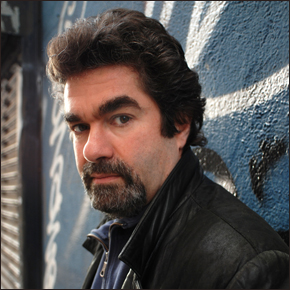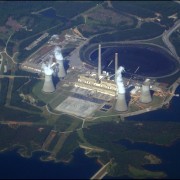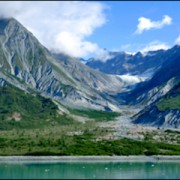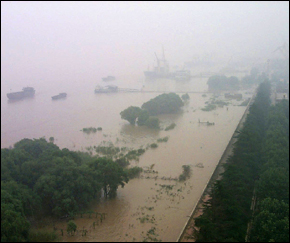“Crude” Director Joe Berlinger Fights Against Chevron’s Subpoena
While promoting his 2009 documentary, Joe Berlinger has landed his own day in court against U.S.-based oil giant Chevron.
UPDATE FROM MAY 12, 2010: More than 300 filmmakers and industry groups, including An Inconvenient Truth’s Davis Guggenheim as well as the Tribeca Film Institute, asked the U.S. Court of Appeals for the Second Circuit last week to reverse a lower court’s ruling to allow Chevron Corp. access to Joe Berlinger’s 600 hours of raw footage from Crude: The Real Price of Oil, The Wall Street Journal reports.
Berlinger spent three years documenting the David and Goliath lawsuit between 30,000 people in the Ecuadorian Amazon Rainforest and the U.S.-based oil giant.
The request builds on a friend-of-the-court brief made by major U.S. news and broadcast companies–including NBC, the Director’s Guild of America, HBO and the New York Times—in early June to protect Berlinger’s journalistic privileges and to prevent long-term damages to documentary filmmaking. Berlinger’s supporters argue that under the first amendment, journalists have the right to keep sources undisclosed, and that taking the director’s unpublished, confidential footage is the equivalent of obtaining a reporter’s notebook.
Berlinger has battled in court since early May to keep the unused, nonpublic film from Chevron, which claims “could be helpful as it seeks to have the lawsuit [in Ecuador] dismissed and pursues an international treaty arbitration related to the litigation,” because of corruption in the Ecuadorian court system, according to the New York Times.
Meanwhile Dole Food Company Inc. has come to Chevron’s defense, saying the footage can be turned over if subjects were interviewed voluntarily and signed release forms, according to WSJ.
The court is schedule to hear Berlinger’s official appeal regarding the material on July 14.
___________________________________________________________________________
Welcome to Circle of Blue Radio’s Series 5 in 15, where we’re asking global thought leaders five questions in 15 minutes, more or less. These are experts working in journalism, science, communication design, and water. I’m J. Carl Ganter. Today’s program is underwritten by Traverse Internet Law, tech savvy lawyers, representing internet and technology companies.
Thirty-thousand rainforest dwellers have taken on one of the largest companies in the world, Chevron, for allegedly having polluted nearly 2000 square miles of the Ecuadorian Amazon. The locals say 50 years of drilling have caused high rates of cancer in their communities; Chevron insists that the inflated illness rates are due to poor sanitation. Chevron inherited the David and Goliath lawsuit–it’s worth $27 billion–when it bought Texaco in 2001. Circle of Blue reporter, Aubrey Parker, spoke with Joe Berlinger about his latest film, Crude. Three years in the making, Crude documents the rising international support for this environmental issue as the lead attorney, a man from the affected area in the Amazon, speaks at Live Earth, graces the cover of Vanity Fair and wins a Hero Award from CNN.
Joe Berlinger: You know, one of the problems with this case is that there are a lot of highly paid lawyers, especially on the Texaco side, and there are study after study of conflicting and competing claims. Your head would spin if you looked at all the paperwork and all the tests. . . Again I’m not a lawyer or scientist, so I’m not here to say who’s right or wrong. The film portrays the issues and portrays the lawsuit, but I think any reasonable person could walk away with the conclusion that if you have a region with significantly high rates of cancer and soil and water contamination, that somehow the two issues are linked. The damage is due to poor sanitation as opposed to anything related to oil, and yet you see oil in the water; you smell it.
Really, it’s for the viewer to judge as to who’s right, but people have been systematically poisoned. The larger issue of the film is not who should win the lawsuit, but the larger issue that industrialization and oil production, whether it’s legal or illegal, has had a tremendous impact on these people. Basically they have been poisoned, and the area needs to be cleaned up.
Thank you, Aubrey. Circle of Blue’s Aubrey Parker has been speaking with Joe Berlinger, director of the movie, Crude. It’s a film about oil, conflict and water in the Amazon. To learn more about the challenges in the Amazon and to find more articles and broadcasts on water, design, policy and related issues, be sure to tune in to Circle of Blue online at 99.198.125.162/~circl731.
Our theme is composed by Nedev Kahn. Circle of Blue Radio is underwritten by Traverse Legal, PLC. Internet attorneys specializing in trademark infringement litigation, copyright infringement litigation, patent litigation and patent prosecution. Join us again for Circle of Blue Radio’s 5 in 15. I’m J. Carl Ganter.
Aubrey Ann Parker is a reporter for Circle of Blue where she specializes in data visualization. Reach her at circleofblue.org/contact.
is a Traverse City-based assistant editor for Circle of Blue. She specializes in data visualization.
Interests: Latin America, Social Media, Science, Health, Indigenous Peoples










Leave a Reply
Want to join the discussion?Feel free to contribute!